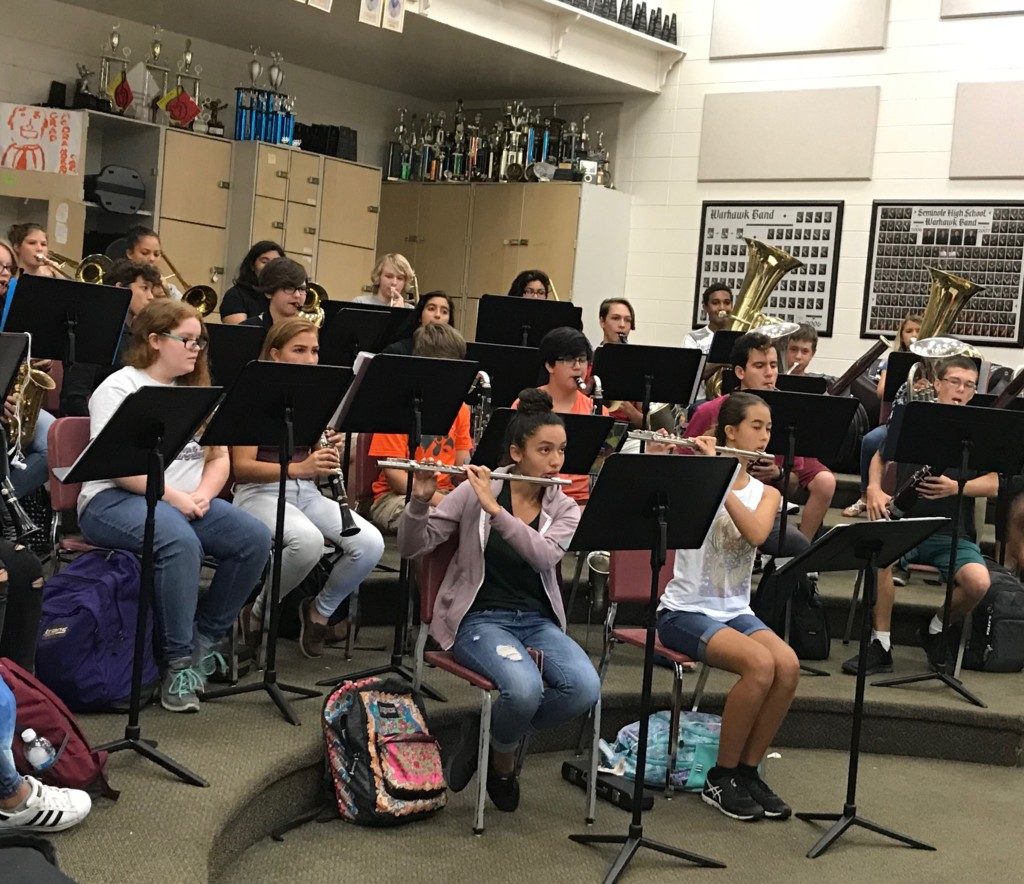If you ask Florida Sen. Jeff Brandes (R-St. Petersburg) what he thinks the education world will look like in the year 2040, he’ll tell you it will be going back to the past.
“I see us moving back to the one-room schoolhouse where we have students of different capabilities working with each other to help everyone rise,” Brandes says.
The Pinellas County lawmaker pushes innovative education policies every year in the Florida Legislature, but new leadership more focused on education choice appear to be giving his ideas more traction.
His signature education bill this session, SB 226, would expand a mastery-based education pilot program from the three Florida counties currently testing the concept to any district in the state that wishes to participate. The bill wasn’t heard in committee last session but is on track to pass this year with wide bipartisan support. A similar bill is currently awaiting passage in the House.
Brandes firmly believes that the flexibility of mastery-based education and the wide array of options it provides will expand opportunities for students.
“Our goalposts cannot simply be you got an education or degree,” Brandes said. “A job is the goalpost. How do we focus everything that we're doing to line up to professions that are out there for people who complete their education?”
SB 226 is not a mandate. Districts would have to opt in to participate, and there are unanswered questions about implementation, funding and state-mandated testing. But testing certainly would change under a mastery-based education system.
Brandes says this is a good thing.
“The upside is that we get to take the temperature of each individual student in real time … Why do we need to take the temperature once a year if we’re taking it every day?”
Listen to the full interview below or on iTunes.

Members of Seminole High School Band practice during a rehearsal. The music program is now part of the school's Academy for Advancement in the Arts.
In 2014, graduate rates surged throughout Florida, continuing years of growth. But numbers at Seminole High School were going in the opposite direction.
Once an A-rated school, it had slipped to a C. In 2007, Newsweek recognized it as a top high school in the country. But in the years that followed it faced mounting competition from within the Pinellas County school district. A nearby fundamental program at Osceola High School and an International Baccalaureate program at Largo High were drawing high-achieving students.
Jane Lucas, Seminole High's assistant principal, said at the time, she identified the crux of the problem. Students were disengaged.
"We want to be the high school that wouldn't let any child fall through the cracks," she said.
Thomas Brittain, principal at Seminole High, had just become the principal. He agreed something had to change.
Administrators began working on a plan to transform their high school from the bottom up. Lucas described the ensuing changes as "de-institutionalizing the institution."
Seminole High wound up throwing out some old-school conventions, like bell schedules. It started offering new programs tailored to students' career aspirations. It now includes seven in-house academies, built around themes from theater to engineering to sports. The new structure held on to core classes but gave students a variety of projects outside the classroom based on real-life concepts such as business and engineering. Rather than penalize students who struggle, they look for ways to help them succeed.
Lucas said Brittain, who joined the district in 2013, took the helm at just the right time.
“I remember his first meeting with our faculty and staff," she said. "He put forward his vision talking about how students need to be engaged and cared for."
At the time, officials across the Pinellas school district were starting to talk about personalized education. They were preparing to apply for a grant from the Bill and Melinda Gates Foundation to support a new approach.
Flash forward a few years, and people who visit Seminole High School find a more humane learning environment. The school tries to treat students with respect and expects them to take ownership of their learning.
“No bells seems to bring a sense of calmness,” Lucas said. “We are treating people the way they want to be treated.”
Seminole High, home of the Warhawks, is home to more than 2,000 students.
Brittain said it all comes down to giving students choices.
"The larger the school, the more rules people tend to make. It doesn’t have to be that way," said Brittain. "We have taken a lot of rules away and asked students to be responsible.” (more…)
During Seminole Warhawks Varsity football games, Cassidy Brooks has a front row seat. She snaps pictures of football players as they make touchdowns or tackles.
After covering a game for the Sports Career Institute at Seminole High School in Pinellas County, Fla., she edits her photos and publishes them on its website.
“It gives me an opportunity to build a portfolio,” said Brooks, a senior. “I might be interested in pursuing a career in the sports. It is something I really enjoy doing. It doesn’t feel like work. It is just a fun thing.”
The academy is one of seven the school offers as part of a personalized learning initiative that began in 2014. The academies give students more choices and real-world experience in fields that interest them.
The school continues to provide a core curriculum in conjunction with the academies. The new structure, the first of its kind in Pinellas County schools, is part of broader a push to tailor instruction to students’ individual needs, strengths and interests.
Administrators designed the academies with college majors in mind. (more…)